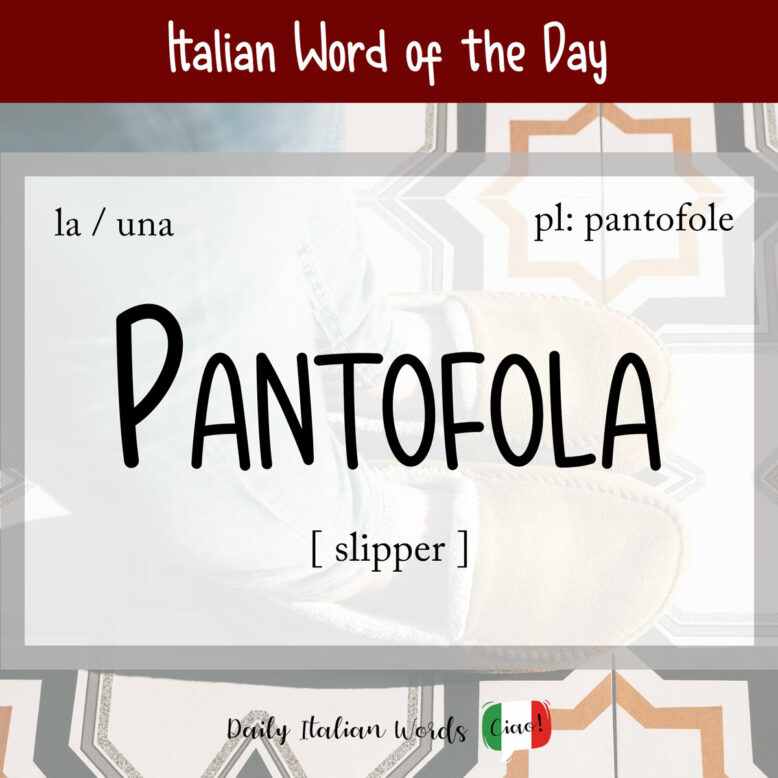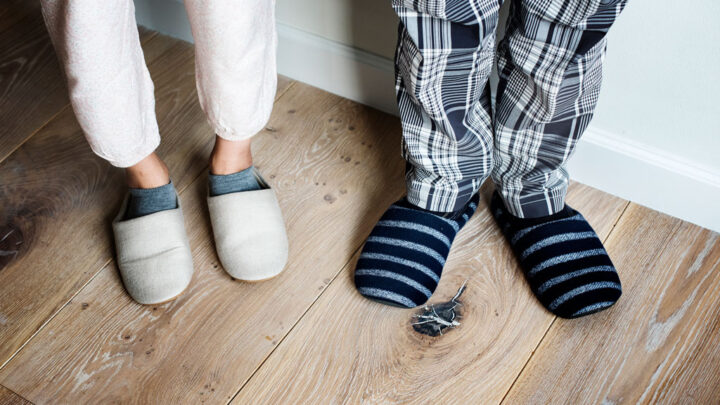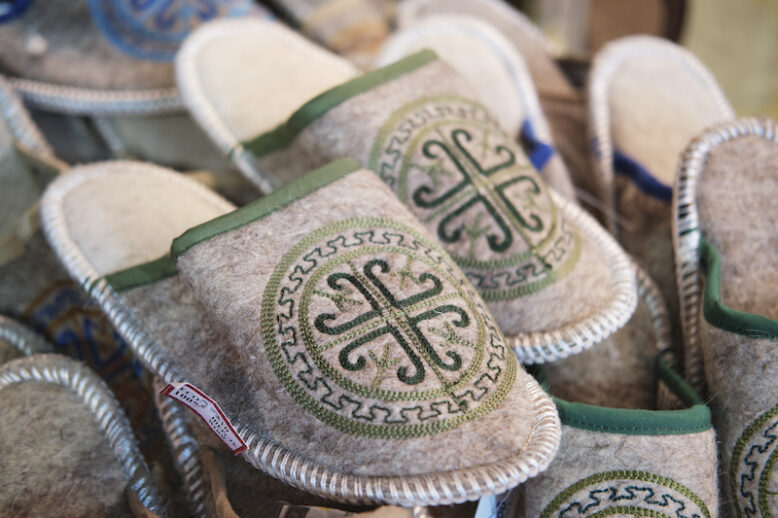No sooner do I get home from work than do I slip out of my work shoes and straight into my comfy pantofole, the word for slippers in Italian.

Pantofola is a feminine noun that takes the following definite and indefinite articles:
- la pantofola = the slipper
- le pantofole = the slippers
- una pantofola = a slipper
- delle pantofole = some slippers
This term applies to any comfortable indoor shoe, usually made of leather, cloth, felt, or wool, that completely covers the foot. It may or may not have a heel but is usually padded.
Mi piace mettere le pantofole quando torno a casa.
I like putting on my slippers when I get home.

The diminutive pantofolina is used for children’s slippers or any slipper that is small and delicate.
A close synonym of pantofola is ciabatta, with the difference being that ciabatte tend to lack the upper part that covers the toes. The same word is used for the long, flat and crunchy white bread people often eat with their meals in Italy.
The pianella, on the other hand, is a type of pantofola that leaves the foot uncovered at the ankle. Traditionally it was a generic term used to indicate different types of European wedge footwear between the 14th and 17th centuries.
Important: Italians tend to use the words pantofole or ciabatte interchangeably when talking about slippers, so don’t lose any sleep over using the correct term! 😉
Derived from pantofola are the slang terms pantofolaio (for a man) / pantofolaia (for a woman) which can be used in a humorous or derogatory way to describe an inactive person. The closest English translation would be couch potato.
Mio nonno è un vero pantofolaio. Non fa altro che guardare la TV tutto il giorno.
My grandfather is a real couch potato. He does nothing but watch the TV all day long.
The expression mettersi in pantofole (lit: put oneself in slippers) is used to describe someone who abandons his or her exciting lifestyle for a routine or idle existence.
Da quando si è sposato, Marco si è messo in pantofole.
Since Marco got married, he has slowed down.

Heather Broster is a graduate with honours in linguistics from the University of Western Ontario. She is an aspiring polyglot, proficient in English and Italian, as well as Japanese, Welsh, and French to varying degrees of fluency. Originally from Toronto, Heather has resided in various countries, notably Italy for a period of six years. Her primary focus lies in the fields of language acquisition, education, and bilingual instruction.


